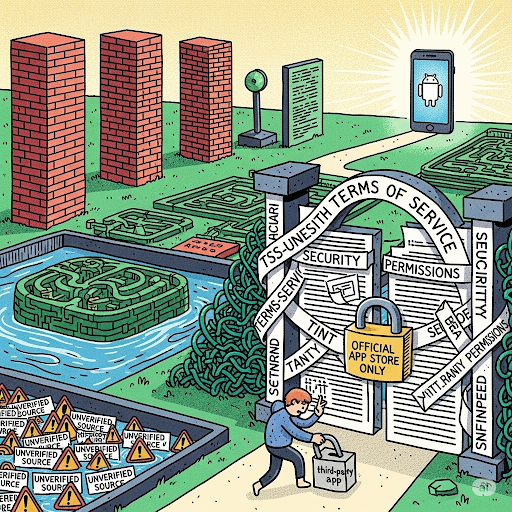Google continues to tighten Android's security policy by implementing new mechanisms that significantly complicate the installation of applications from third-party sources. We analyze what changes await users and developers.

G. Ostrov
Google is actively strengthening the Android ecosystem by gradually limiting the ability to install applications from alternative sources. The latest changes in the company's policy are aimed at improving security but simultaneously create additional barriers for users and independent developers.
Key Changes in the Security System
New protection mechanisms include enhanced APK file verification, additional warnings when installing apps from unknown sources, and expanded Google Play Protect security checks. The system now more aggressively blocks potentially dangerous applications, even when users have explicitly allowed their installation.
Impact on Users
Regular users will face an increased number of warning messages and additional confirmation steps when attempting to install applications outside Google Play. This could significantly complicate the installation process for legitimate applications from independent developers or regional companies.
Consequences for Developers
Independent developers and companies that prefer not to place their applications in Google Play for various reasons will find themselves in a difficult position. They will need to seek alternative ways to distribute their products or agree to Google Play Store terms and conditions.
Alternative Solutions
Despite the restrictions, users can still install applications from third-party sources through alternative app stores such as F-Droid, Amazon Appstore, or Samsung Galaxy Store. However, the procedure becomes more complex and requires additional technical knowledge.
Official information is available on the Android Developers website.
If you encounter any problems, write to us, we will help quickly and efficiently!




